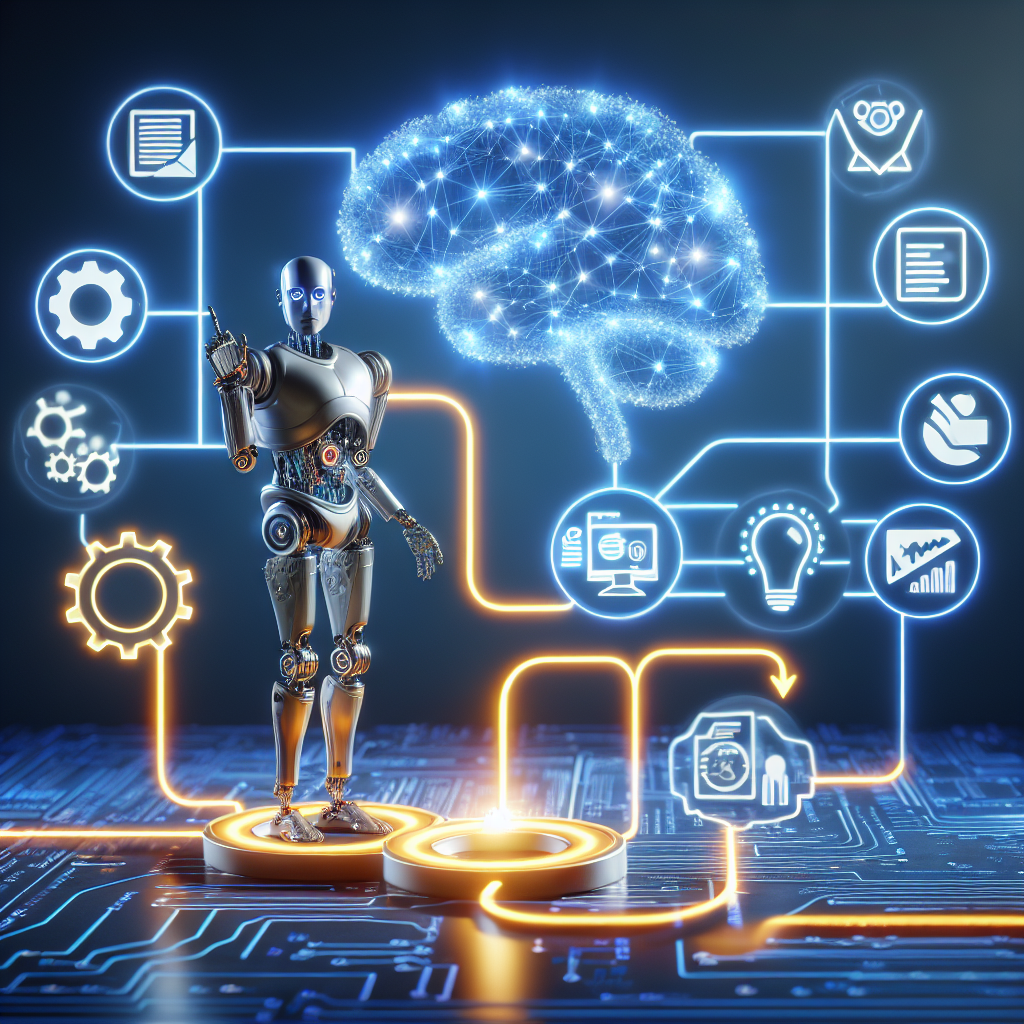The Role of AI in Marketing Automation Workflows
In today’s fast-paced digital world, marketing automation has become an essential tool for businesses looking to streamline their marketing efforts and reach their target audience more effectively. And with the rise of artificial intelligence (AI), marketing automation workflows have become even more powerful and efficient.
AI has the ability to analyze vast amounts of data in real-time and provide insights that can help marketers make more informed decisions. This technology can help businesses automate repetitive tasks, personalize customer interactions, and optimize their marketing campaigns for better results.
One of the key roles of AI in marketing automation workflows is predictive analytics. By analyzing customer data and behavior patterns, AI can predict future trends and help marketers anticipate the needs and preferences of their target audience. This allows businesses to tailor their marketing campaigns to specific segments of their audience, increasing the likelihood of conversion.
Another important role of AI in marketing automation workflows is personalization. AI can analyze customer data to create personalized messages and recommendations based on each individual’s preferences and behavior. This level of personalization can help businesses build stronger relationships with their customers and increase customer loyalty.
AI can also help businesses automate routine tasks such as email marketing, social media management, and lead scoring. By using AI-powered tools, marketers can save time and resources, allowing them to focus on more strategic tasks that require human creativity and insight.
Furthermore, AI can help businesses optimize their marketing campaigns by analyzing data in real-time and making adjustments to improve performance. For example, AI can A/B test different variations of a marketing campaign to determine which one is more effective, or it can identify trends and patterns in customer behavior to help marketers make more informed decisions.
In conclusion, AI plays a crucial role in marketing automation workflows by providing predictive analytics, personalization, automation of routine tasks, and optimization of marketing campaigns. By leveraging the power of AI, businesses can reach their target audience more effectively, increase customer engagement, and drive better results from their marketing efforts.
FAQs
1. What is the difference between marketing automation and AI in marketing?
Marketing automation refers to the use of software tools to automate repetitive marketing tasks, such as email marketing, social media management, and lead scoring. AI in marketing, on the other hand, refers to the use of artificial intelligence technology to analyze data, predict trends, personalize customer interactions, and optimize marketing campaigns.
2. How can AI help businesses improve their marketing campaigns?
AI can help businesses improve their marketing campaigns by analyzing data in real-time, providing predictive analytics, personalizing customer interactions, automating routine tasks, and optimizing campaign performance. By leveraging the power of AI, businesses can reach their target audience more effectively and drive better results from their marketing efforts.
3. What are some examples of AI-powered marketing tools?
There are many AI-powered marketing tools available on the market today, including chatbots, predictive analytics platforms, personalization engines, and marketing automation software. These tools can help businesses automate routine tasks, personalize customer interactions, and optimize their marketing campaigns for better results.
4. How can businesses implement AI in their marketing automation workflows?
Businesses can implement AI in their marketing automation workflows by investing in AI-powered marketing tools, such as chatbots, predictive analytics platforms, and personalization engines. They can also work with AI consultants or agencies to develop custom AI solutions that meet their specific business needs.
5. What are the benefits of using AI in marketing automation workflows?
Some of the benefits of using AI in marketing automation workflows include increased efficiency, improved personalization, better targeting, and optimized campaign performance. By leveraging the power of AI, businesses can reach their target audience more effectively, increase customer engagement, and drive better results from their marketing efforts.

